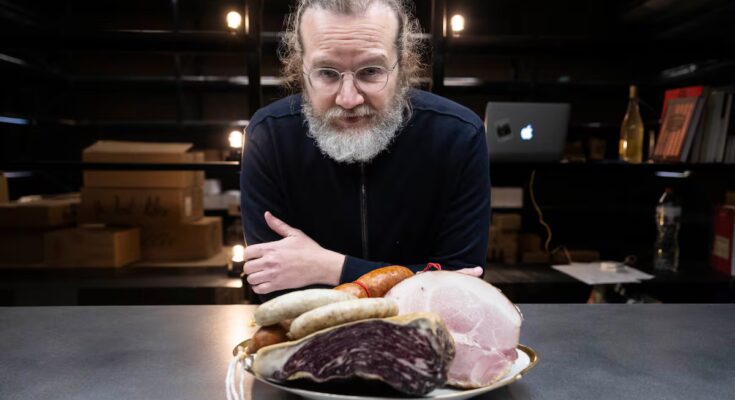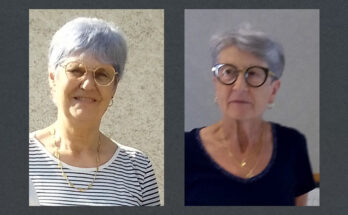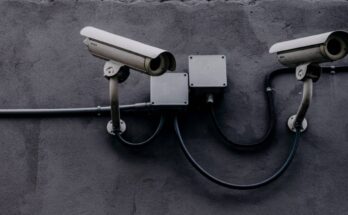Rafa Peña is a chef who never gets bored. Nearly 20 years ago, when a wine bar was a concept that didn’t sound as hot as it does now, he opened Gresca with his partner, Mireia Navarro. “We saw what was being done in France and wanted to start one. We have been selling natural wines since 2006, when in Barcelona there were only L’Ànima del Vi and Lavinia, who taught us a lot,” he says. Subsequently, after looking for a place to have a drink after work and not finding it, they created the Bar Torpedo (Aribau, 143), where you can eat excellent sandwiches and drink well until three in the morning. In 2020 he made the leap to Madrid, taking the helm of the La Librería restaurant at the Hotel Santo Mauro and this summer he opened another Torpedo in Barcelona (Diputació, 301). This week he just inaugurated his latest project, the delicatessen shop Provisions Gresca (Carrer del Rosselló, 209) where he sells his preparations such as butifarra de papada, chorizo criollo or pâté campanya, among others. “I had a warehouse that had become too small for me because it contained more than 35,000 bottles of wine. Next to Gresca there was a shop that had been empty for two years and we thought that setting up a wine shop made no sense because there are a thousand of them, but why not a delicatessen?”
At Gresca, in addition to the famous Iberian loin and the Comté cheese bikini with very thin bread – which has become one of the most copied and an icon of Barcelona – they have been creating their own pieces of cured meats for some time. For this reason, Peña believes that opening a delicatessen helps to evolve this line of research. “We spent a year and a half testing many recipes for Catalan and French cured meats, from pâté en croûte to tray, but also to black pudding from Burgos. We were so self-taught that my cholesterol must have been at its highest,” he says, laughing.
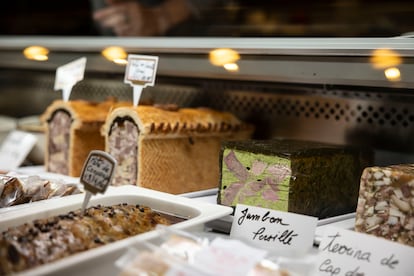
“The idea is to create a neighborhood delicatessen, which everyone can access, where we can offer the same things as in Gresca and which can act as our supplier.” In fact, it opened last Saturday without warning, so it was able to tour for a few weeks and, for the moment, its clientele comes from the neighborhood. “We have spoken to many long-standing delicatessen makers and they all agree that it is a union that has not been able to be media-focused. This has not penalized them, but there is no generational turnover and it differentiates one profession from another: cooking, with the great world stars, makes young people want to be part of it. In delicatessen, I hope that Xesc Reina, the guru of delicatessen in Spain, is an example to achieve this, because it is a beautiful profession and very much ours,” he adds.
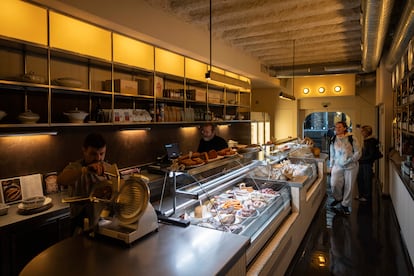
In these years of his Gresca restaurant, Peña says he has seen jobs disappear: “The people who dedicated themselves to the fields did not have a replacement or left because they were paid very little. We were not honest with the field, people do not want to pay for the quality of what it is worth. Therefore it is important to know what you eat. I am not saying that one day you cannot eat a sandwich from the vending machine, life is not perfect, but in everyday life you have to eat well and be aware of what you eat, but obviously you have to pay for this reason, unlike what happens in other places, the Catalan chef does not indicate on his menu the origin of the products with which he prepares his dishes. “I would have to put it on everything,” he says. “So let’s just say that we try to be as local and seasonal as possible. And that I don’t buy in Canada. The furthest thing is citrus fruit in Perpignan, which for me is a local purchase.”
His passion for the world of wine, his knowledge and friendship with French and local winemakers are reflected in the menus of his shops. “At first, when I started with wine, I bought everywhere out of pure curiosity, but now I stopped doing that because, why bring 12 bottles from Australia? There might be a few, but it can’t be the majority of the menu. Living in Europe, I don’t see the need to buy wines from far away,” he says. And what is immobile is the possibility of the daily menu at lunchtime, from Monday to Friday. “It’s what I like best because every week we force ourselves to change it and it’s a really fun game for the kitchen. It costs 24 euros and I owe it to that customer who has been coming since 2006.”
Offers continue to pour in to carry out projects around the world, such as the opening in Dubai. “But what am I doing in Dubai?” he asks. However, he opted for Madrid and five years ago took over the management of the La Biblioteca restaurant at the Hotel Santo Mauro. “If we were to move to Madrid, it would be here. Have you seen this?” he says in the middle of one of the sumptuous hotel rooms which contrasts with the shorts he always wears. “I wear shorts all year round because they’re very comfortable. No posing, but if they ask for a jacket, I go by the rules of the place,” he says.
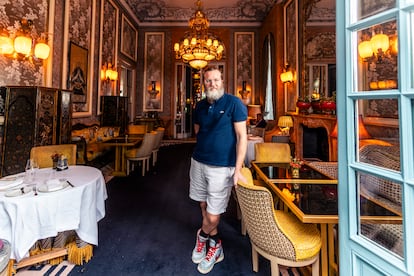
His position on the media exposure of chefs is critical. “There are many things exaggerated, as in other jobs. We are chefs, people who take the knife in the morning, cut onions and cook, but we are not doctors or nuclear physicists.” He also doesn’t like to talk about his customers, although some like Dua Lipa are Gresca’s regular customers and post on their social networks every time they come. “The interesting thing is that she is interested in understanding things. She is a person who goes beyond her work and shares her hobbies: restaurants, wines, reading… She does it in a very honest way, recommending only what she likes. And she likes to drink good natural wine and eat well.”
When he looks back and remembers his beginnings, he also remembers Dabiz Muñoz. “We would dress each other up and say, ‘How miserable we are, we’re both sleeping in the kitchen,’” she says, laughing. “I had some mats in the corridor and when at three in the morning we couldn’t take it anymore, we put a pillow, we covered ourselves and at seven we woke up to start again. We were twenty years old versus fifty years old now. I don’t recommend it to anyone. And I don’t regret it, but I think there must be other ways than these. You have to work in normal conditions.”
